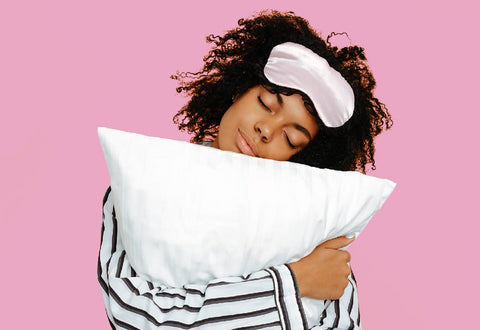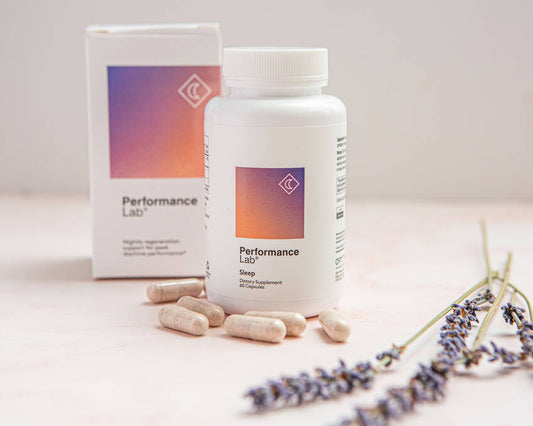Introduction
The jury has a verdict.
After hours of intense discussion and weighing of evidence, they stand with a unanimous verdict: Sleep is indispensable for every facet of our existence.
Placards seen outside the courtroom bearing the slogan, "You Snooze You Lose" were immediately taken down.
It's a triumphant result for those who've campaigned tirelessly to have more hours in bed. For the dreamers who eagerly retreat to their sanctuaries, immersing themselves in deep, cushioned slumber. For those who wake in the morning, like a Disney protagonist, utterly rejuvenated, bursting with energy, and exuding a luminosity that can only come from a night of unadulterated rest.
...But what about the rest of us?
What about those who don't experience this overnight regeneration? The ones who occasionally toss and turn. The ones who wake at 2am with active brains. Who get treated to the showreel, "Your most embarrassing highlights from the last decade". What about those guys?
With sleep having such a direct impact on whole-body health and daily performance, what can we do to improve it?
First, let's look at the evidence behind that unanimous verdict.
The impact of sleep on cognitive performance & mood
Contrary to the idea that sleep is about shutting down and switching off, there's actually a lot of 'housekeeping' that goes on whilst we sleep.
Whilst it's fair to say that sleep is generally considered a period of rest for the body. During that nightshift, the brain undergoes many complex processes to keep it in optimal condition.
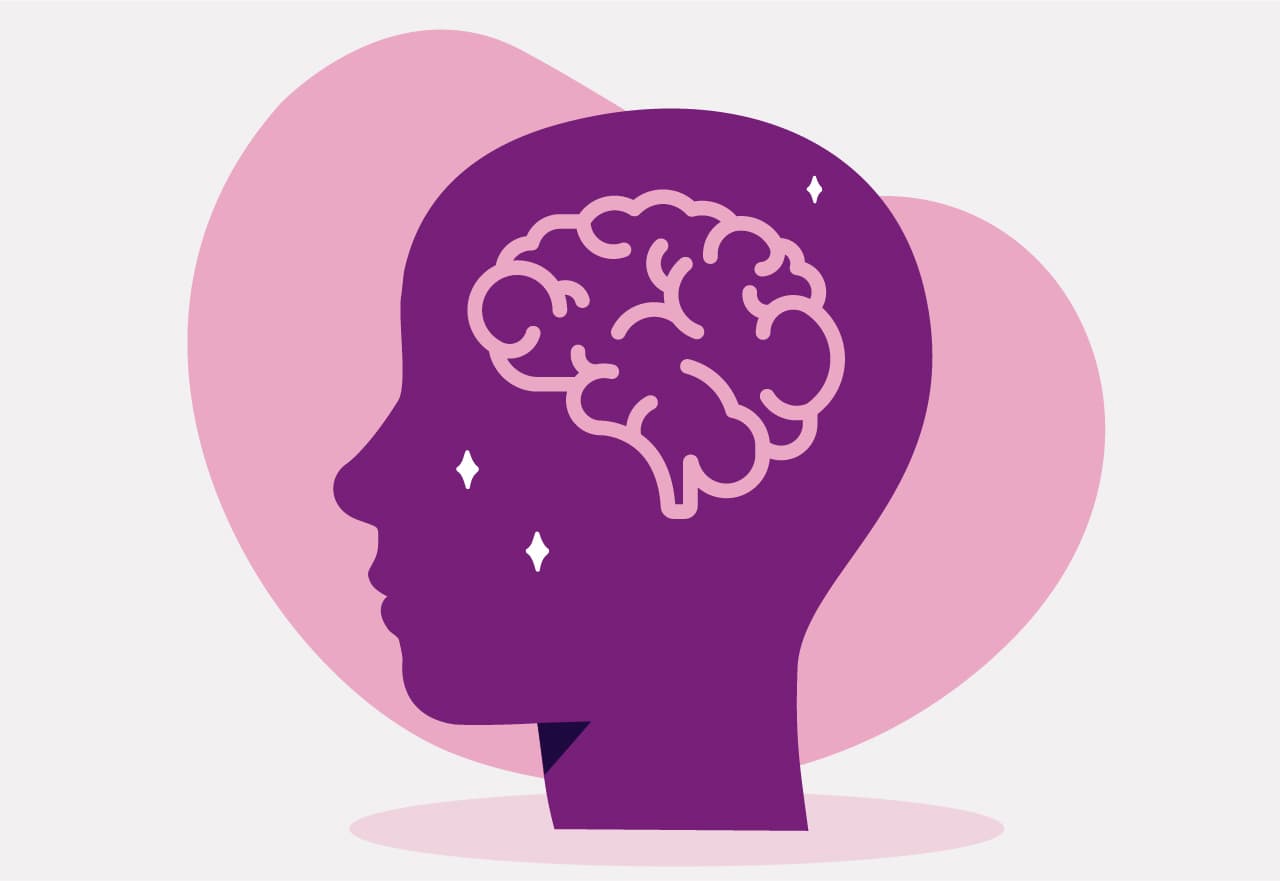
Memory and Learning
Most of us will go through four to five sleep cycles per night. Each cycle lasts approximately 90 to 110 minutes each. REM sleep plays a pivotal role in memory consolidation, especially for procedural memories (how to do things) and emotional memories. The first period of REM is normally quite short, and as the night progresses, longer periods of REM occur.
The longer we can stay asleep, the longer the REM phase will be.
Sleep helps reorganize and transfer memories from the hippocampus, which is involved in short term memory storage, to the cortex which is involved in long-term storage. This transformation allows us to retain information over extended periods and improve our ability to learn and store new information.
Let me sleep on it.
Sleep deprivation can also lead to 'feedback blunting'. Meaning our brains don't react as strongly to feedback as it normally would.
This means if we do something right or wrong, our brain doesn't respond to the outcome as much. Because of this, we might find it harder to change our behavior when situations change. It's like trying to learn from your mistakes without really feeling the effects of the mistakes.
This has significant implications for performance in our professional lives, sports, and any situations where decision-making and problem solving is crucial.
Mood Regulation
We've all been in the presence of a child who is 'overtired'. So we all know what tiredness can do to a mood.
There's tired and then there's overtired.
And in a cruel twist, the two can become interlinked.
The amygdala is an area of the brain that plays a pivotal role in processing emotions and has been especially linked to fear responses and emotional memories.
A study showed that when sleep deprived participants were shown emotionally negative images, activity levels in the amygdala were as much as 60% higher than levels in those who were well rested. Researchers found that sleep deprivation had disrupted the connection between the amygdala and the prefrontal cortex. This is the area responsible for rational thinking and decision-making. And when we're sleep deprived, that area becomes less active.
So, we have the area responsible for fear and emotional memories working overtime. And the area responsible for rational thinking becoming less active. In this scenario, it's easy to see why a lack of sleep can result in feeling 'tetchy' at best.
Overtiredness - it's not just for kids.
In fact, thirty and fortysomethings are particularly vulnerable to it. This article outlines overtiredness perfectly. We used to be able to take little breaks of concentration in our day. In the days before smart phones, self-checkouts, and on-demand viewing, we had to wait around a lot. At the supermarket, tv commercial breaks, waiting for a friend to join you for coffee, these were all moments in our day when our brains had a little down time.
But now, we take less breaks. We fill the natural 'gaps' in our days with scrolling. We keep going. And if your brain is always seeking out activity, then it becomes harder to switch off at night.
Lack of sleep can affect our ability to cope and our emotional stability. If the brain is constantly bombarded, it goes into survival mode. It assumes something bad will happen, it becomes hyper-vigilant. So it helps us stay awake, ready to defend against danger. And we become overtired.
The impact of sleep on physical performance
During sleep phases, critical repair processes get underway, from cell regeneration to the release of growth hormones. These processes are vital for muscle recovery, immune function, and overall systemic balance.
Muscle Recovery

Athletes need a balance between pushing themselves and taking time to recover. Performance is controlled by both our central and peripheral nervous systems. Fatigue can make both the mind and body less effective.
During deep sleep, particularly in the slow-wave sleep phase, the body releases growth hormones. These hormones are essential for muscle repair and growth. They stimulate muscle protein synthesis and help in the regeneration of muscle fibers.
Endurance and Stamina

Sleep deprivation impacts the prefrontal cortex which is an area of the brain responsible for executive functions and decision making. It can also lead to a reduction in dopamine. A neurotransmitter responsible for motivation, pleasure, and reward.
Lack of sleep = lack of motivation.
Endurance sports by nature, not only demand physical stamina, but also immense mental strength. Perhaps more than any other discipline, these activities are profoundly affected by a lack of sleep. Long-distance runners, cyclists, and triathletes often describe reaching a moment in their event where they 'hit a wall.' A point of extreme fatigue and depletion. It's not just about muscle fatigue; the mind plays a crucial role here too.
Mental clarity and focus are key to pushing through this barrier and tapping into those reserves of motivation and discipline.
A systematic review of studies to look into the effect of sleep deprivation on endurance performance concluded that one or more nights of partial sleep deprivation, or one night of total sleep deprivation, compromises endurance performance. Particularly on exercises lasting more than 30 minutes.
Coordination and Reflexes

Choice reaction time is a measure of the speed and accuracy with which an individual can perceive a stimulus and make a decision about how to respond. It's something athletes do all the time.
It's thinking on your feet.
It's interpreting a situation. A game going on around you - spotting a formation, that pass, that gap. Identifying a moment of opportunity and acting upon it.
A study was carried out to determine the effects of one night's sleep deprivation on anaerobic performance and reaction. The results showed an increase in reaction time after only one night of disturbed sleep.
"Sleep is indispensable for every facet of our existence."
What can be done then, for those that struggle with sleep? Are there any little wins, hacks, or habits to help?
Can I catch up on sleep?

Experts agree that most adults should get between 7 and 9 hours each night. If we're falling short of that, can we make it up over the weekend?
A study on this query was carried out by Kenneth Wright, an Integrative Physiology professor at the University of Colorado. 36 adults took part and were split into 3 groups:
Group 1 were allowed 9 hours sleep each night, for 9 nights.
Group 2 were allowed only 5 hours sleep each night, for 9 nights.
Group 3 were allowed 5 hours sleep for 5 nights and then no limits for the following 2 nights.
Group 3 were mirroring a sleep deprived working week, followed by a weekend, where they could get as much sleep as they needed.
All 3 groups were assessed around the clock to track changes in sleep, circadian rhythm, food consumption, body weight, and insulin sensitivity.
After their first 5 days of 5 hours sleep, group 3 started their 'weekend' with a 12-hour sleep deficit. The results for this group showed that of those 12 hours, they only managed to recoup 3 hours' worth of sleep in total.
That's only 25% of the sleep originally lost.
They still had a deficit of 9 hours. Which then rolled over into the next week. Group 3 were heading into Monday with a deficit of 9 hours already.
No wonder we don't like Mondays.
Not only that, but the regular testing of sleep quality showed that this pattern of sleep had disrupted Group 3's circadian clock. Melatonin is a hormone that regulates your sleep-wake cycle. Its production increases when it's dark, signaling that it's time to rest, and decreases when it's light, indicating it's time to wake up. Group 3's tests showed a lack of suppression of melatonin in the morning. Levels were lingering higher than they would normally be, resulting in a sleepy, groggy feeling.
In addition to this, there was a decline in insulin sensitivity leading to an increase in appetite and snacking, which in turn led to an increase in weight.
If you really want to recoup your sleep, it's best to chip away at that deficit incrementally. Start by going to bed 30 minutes earlier each night. If you can, adjust your schedule so you wake a little bit later in the morning. But really the best way to avoid having to pay back the bank of sleep is to avoid getting in debt in the first place.
Foods to help you sleep
We know that caffeine should be avoided in the run up to bedtime. But are there foods we can incorporate into our diet to help with sleep? Will eating foods that contain melatonin or magnesium improve our sleep quality? And does eating cheese really make you dream?
Cheesy dreams? Apparently yes, it's a thing.
According to a 2005 study carried out by the British Cheese Board, 5% of people eating Cheddar dreamt about celebrities and over 65% of participants eating Red Leicester revisited their schooldays.
Sweet dreams ARE made of cheese.
The study was never published in a peer reviewed journal - but there's logic behind certain foods influencing our sleep. Cheese for example contains tryptophan. An essential amino acid that gets converted into serotonin and then to melatonin. Melatonin is the hormone that helps to regulate the sleep-wake cycles.
Almonds

Almonds are a good source of magnesium and melatonin. Magnesium plays a role in supporting deep, restorative sleep by maintaining healthy levels of GABA, a neurotransmitter that promotes sleep.
Chamomile tea

Chamomile tea contains flavones and apigenin. Both are types of antioxidants. Apigenin binds to certain receptors in your brain to promote sleepiness. A 2011 study took 34 participants with insomnia and gave one group 270mg of chamomile extract twice a day for 28 days. The study found that those participants who had the extract fell asleep 15 minutes faster and experienced less sleep disturbance compared to those who took the placebo.
Kiwi fruit

A study saw 24 adults consume 2 kiwis one hour before bedtime. The results after 4 weeks showed that sleep quality improved by a significant 42.4%. Participants had fewer instances of waking up during the night, total sleep duration was extended by an impressive 13.4% and Overall sleep efficiency went up by 5.41%.
Tart Cherry Juice

Tart cherry juice contains tryptophan and melatonin. Tryptophan helps the body produce melatonin. A study of 20 volunteers consumed either a placebo, or tart cherry juice over a period of 7 days. The results showed the group that consumed Montmorency tart cherry juice showed significant increases in time in bed, sleep time and sleep efficiency.
Do off-the-shelf sleep supplements work?
Most sleep supplements contain antihistamines and whilst these can be a useful short-term solution, taking these regularly can lead to a tolerance to their sedative effects. Consequently, the longer you rely on them, the less likely they are to make you sleepy.
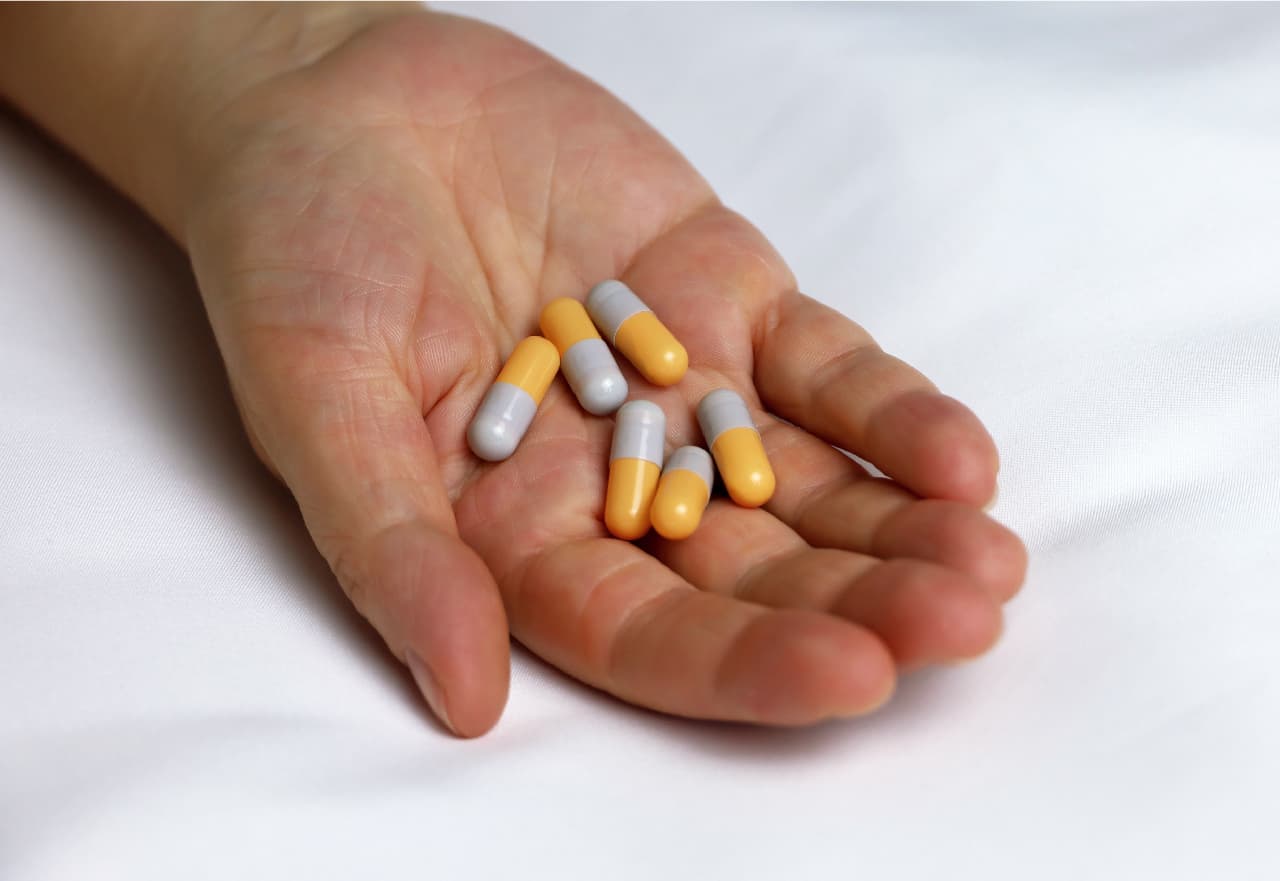
A common problem with over-the-counter sleep supplements is that although they do the job in terms of sleep, it's often hard to wake up. And that feeling of grogginess, is exactly the same as the feeling you get when you don't sleep. That feeling, sometimes known as the hangover effect, is down to synthetic melatonin.
The effectiveness of melatonin in sleep aids can be highly unpredictable due to significant variations in potency. A study examining 31 different melatonin supplements revealed a wide range of inconsistencies in melatonin content compared to the listed amounts. Shockingly, one supplement contained a staggering 478% more melatonin than what was stated on the label, while another had a significant shortfall of 83%. Discrepancies like this undermine the reliability and accuracy of these off-the-shelf sleep supplements.
Related Post: What is the Best Natural Sleep Aid Supplement?
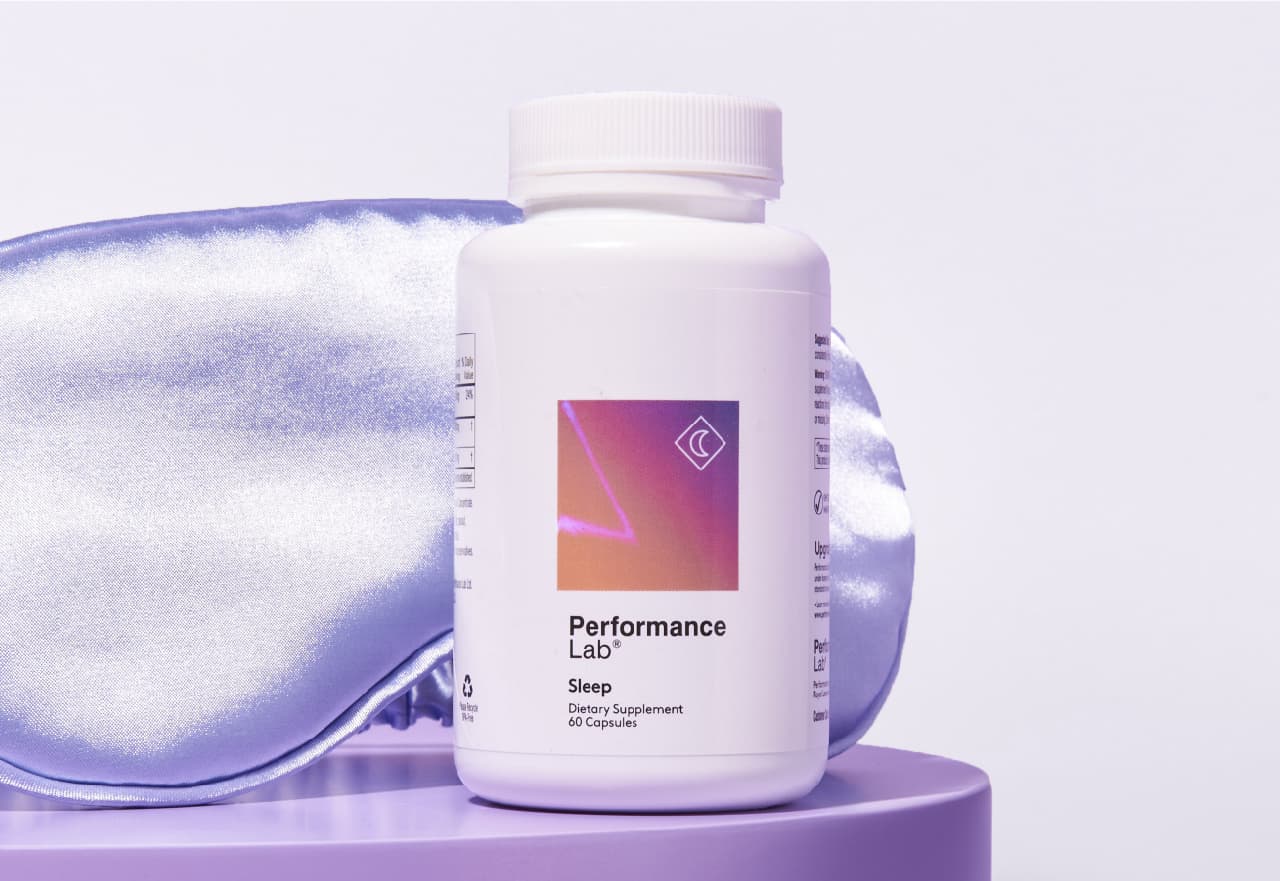
Which is why, rather than synthetic high-doses, Performance Lab® Sleep supplies natural low-dose melatonin from CherryPURE® Montmorency Tart Cherry. CherryPURE® promotes deep sleep better than any synthetic melatonin can. It's safe, non-habit-forming sleep support at a reliable, standardized potency - with no groggy synthetic side effects.
Plus, all our raw materials are quarantined, and every batch we produce is tested internally and third party tested to ensure our products are bioactive, clean, and precise.
Our labels match what's in the bottle, every single time.
And with additional joint and muscle-soothing antioxidants, it has vast performance benefits for athletes.
The performance benefits of tart cherry for athletes Tart cherry is fast becoming the go-to supplement for serious athletes wanting to take their fitness and recovery to the next level - it can help you get the sleep you need for optimal athletic performance. In addition to aiding sleep, several studies have shown that Montmorency cherries reduce oxidative damage caused by strength training, as well as the inflammatory response after high-intensity endurance exercise.
Montmorency cherries for strength recovery
A review suggested that athletes should include tart cherry into their supplement regime as it promotes strength recovery while decreasing inflammation-led reductions in performance.
It can be taken on a daily basis but becomes even more important during periods of high training intensity or volume where muscle damage is caused.
The overall health benefits of tart cherry
Studies have shown that Montmorency cherry promotes all kinds of overall health benefits, from lowering blood cholesterol to reducing biomarkers of inflammation. In fact, a recent review of cherry juice reported the following benefits:
- Reduced oxidative stress
- Anti-inflammatory properties
- Immune health boost
- Less muscle soreness and pain
- Better management of arthritis
- Reduced stress and anxiety
- Improved sleep quality, mood, and cognition
Making Sleep a Priority
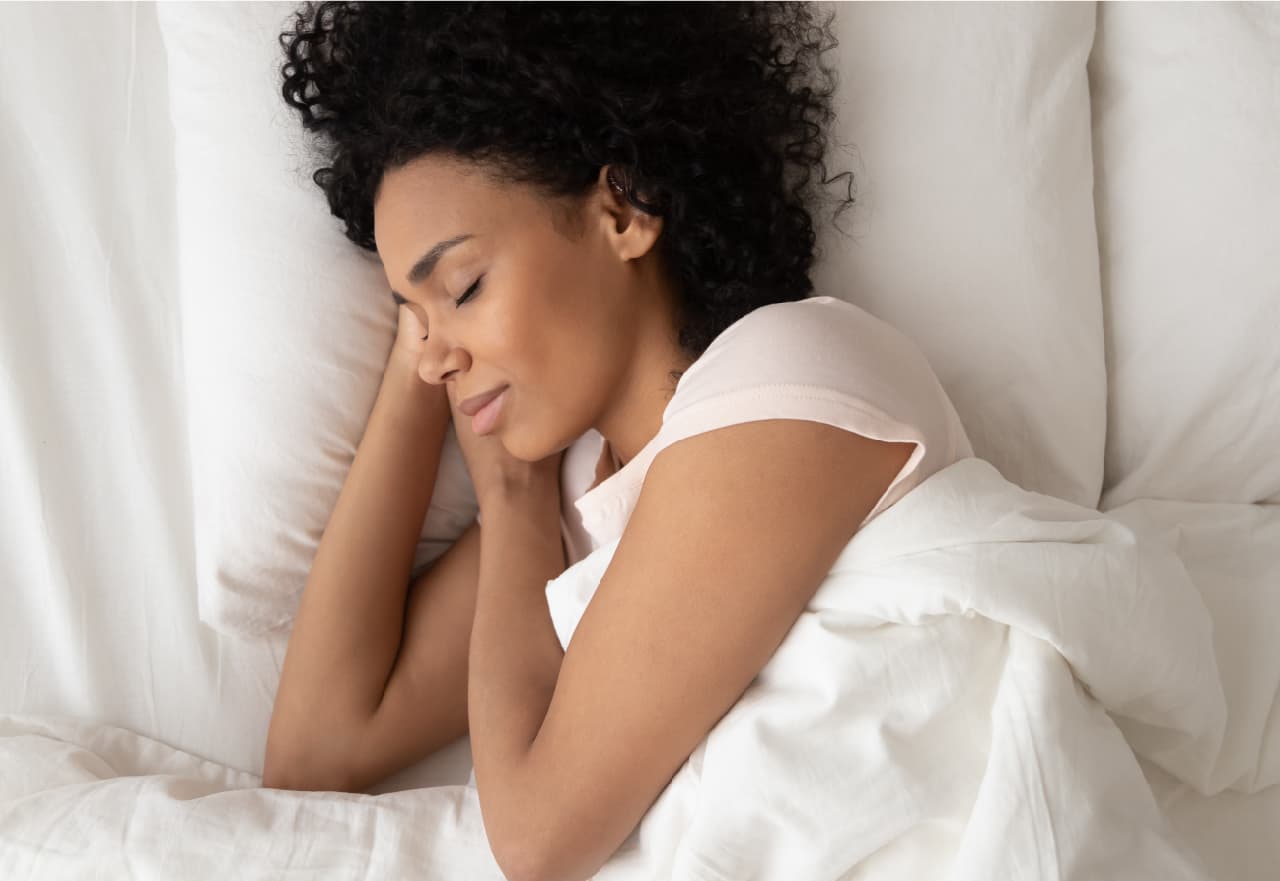
Getting into a good night time routine can make a difference.
Sleep is an essential component of physical health, performance, and psychological well-being. Experts recommend that we start to create our own routines. And, that we stick to them.
Whether you're an athlete pushing your body to the limits or someone just trying to get through a hectic day. A good night's rest is foundational to ensuring you perform at your peak both physically and mentally.
